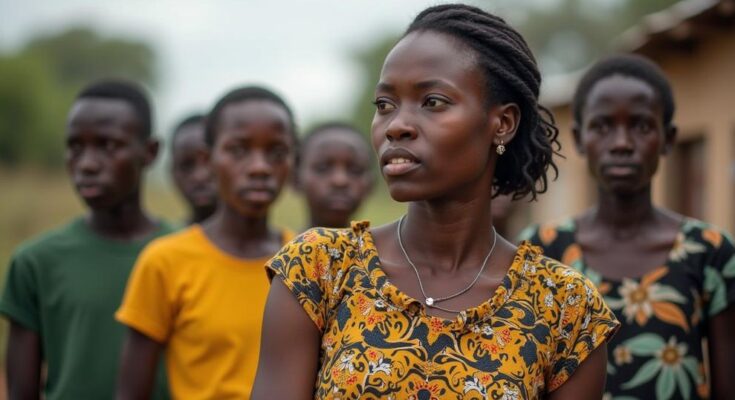Human Rights Watch has urgently called on the Tanzanian government to rectify serious human rights violations ahead of the local elections in November 2024. The authorities have undertaken mass arrests of opposition members while engaging in violent tactics to silence dissent. Cases of enforced disappearances, torture, and intimidation paint a stark picture of the ongoing political repression.
In Tanzania, a shadow looms over the upcoming local elections set for November 27, 2024, with a stark warning from Human Rights Watch about the deteriorating human rights climate within the country. Authorities have taken a hardline approach, arresting hundreds of opposition supporters and cracking down on free speech. Reports have emerged detailing severe tactics used to silence dissent, including the abduction and alleged extrajudicial killing of eight critics. Oryem Nyeko, a senior Africa researcher at Human Rights Watch, highlights the government’s growing intolerance toward dissent: “The Tanzanian authorities have shown increasing intolerance for free speech by clamping down on their critics and the political opposition,” urging immediate measures to halt the oppression. A chilling narrative unfolds with the abduction of Edgar Mwakabela, a social media commentator who was seized by unidentified men in Dar es Salaam. After being tortured and interrogated, he was shot and disposed of like a discarded scrap in a national park. The echoes of his ordeal underscore a broader wave of violence against political opponents, as exemplified by the enforced disappearance of Kombo Mbwana, an opposition official, who remains detained under dubious charges. The oppressive atmosphere brings to mind the tumultuous pre-election period of 2020 when fundamental freedoms were severely restricted amid allegations of state violence. As the state escalates its oppressive measures, the tide of desperation grows among those yearning for a voice. The chilling discovery of beaten bodies underscores the life-threatening risks for those advocating for change. President Samia Suluhu Hassan, who took office after the late John Magufuli, initially showed promise by addressing some human rights concerns but has since been criticized for failing to uphold the integrity of democratic processes and investigate the heinous actions of her government. Human Rights Watch appeals for swift actions, emphasizing the need to protect freedoms as the elections approach. The message is clear: without a drastic shift in policy and approach, a dangerous storm is brewing on the horizon of Tanzanian democracy.
Tanzania’s political landscape has been increasingly marred by state repression, especially as local elections near. The government has been engaging in aggressive crackdowns against the opposition, stifling free speech, and restricting media access. This deterioration of human rights is particularly alarming as it mirrors past abuses during election cycles where violence and intimidation were rampant. The political climate has led to calls for accountability and better governance as the world watches events unfold in this East African nation.
As Tanzania approaches local elections, the urgent call for safeguarding human rights has never been more pressing. The government must take resolute steps to halt the violence and intimidation that threatens to drown the voices of its people. Unwavering vigilance from the international community and civil society is necessary to ensure the forthcoming electoral process reflects the will of the people. Every moment counts as Tanzania stands at a crossroads between oppression and freedom.
Original Source: www.hrw.org



